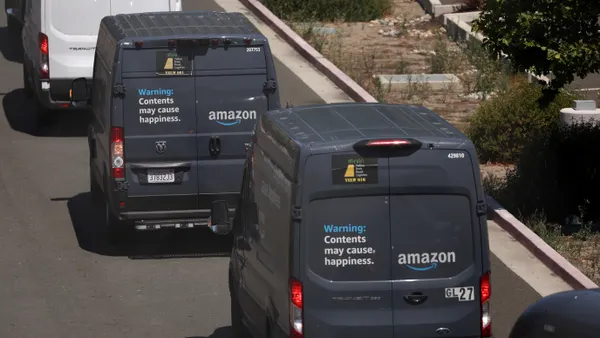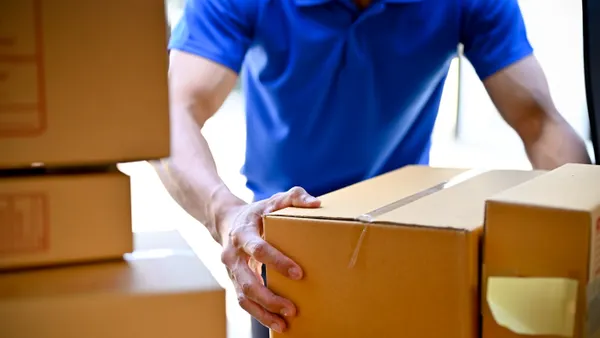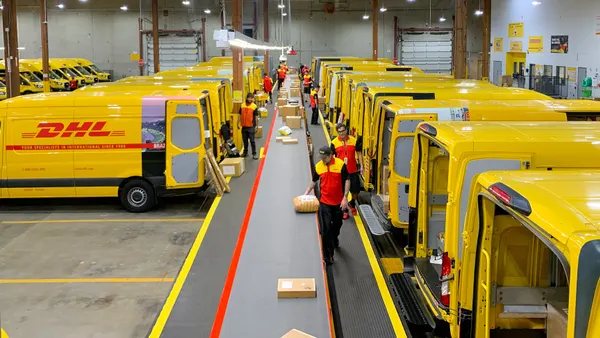Dive Brief:
- Williams-Sonoma's supply chain efficiency improvements benefited its bottom line in Q1, executives said on a May 22 earnings call. The efforts improved its gross margin by 240 basis points, CFO Jeff Howie said.
- The home products retailer limited instances of shipments originating from out-of-market areas and multiple deliveries per order, and it also saw fewer order returns and replacements.
- The company aims to further reduce replacement frequency sparked by damages during shipping, President and CEO Laura Alber said. "We are digging into and root-causing every single incident that we have to make sure that that is not happening again, and that's going to continue to go throughout the year and beyond."
Dive Insight:
While plenty of companies ship apparel and smaller goods effectively, there are few that thrive when it comes to shipping furniture and keeping customer satisfaction high during that process, according to Alber. Williams-Sonoma aims to be one of those select few.
In November, Alber said customer metrics such as on-time delivery were at record highs. The retailer aims to keep making strides in outbound logistics, with its supply chain team's ultimate goal being to deliver "the perfect order" — a damage-free, on-time shipment — she said on last week's call.
"I've always said the person who can deliver the order will win this whole market because it is a very frustrating experience to not receive your furniture on time and damage-free, and it's very difficult to do," Alber said. "So I'm thrilled with our progress, but truth is, there's still a lot more to do to hit that perfect order."
Although Williams-Sonoma still has room for improvement, the company has made supply chain strides as it emerges from pandemic-related delivery delays and cost increases. Cost of goods sold as a percentage of net revenues — a metric that includes shipping expenses — decreased from 61.5% to 51.7% year over year in Q1, which ended April 28.
The company has also invested in its supply chain to further improve its logistics capabilities. This includes the opening of a distribution center in Arizona to speed up West Coast deliveries and using AI to strike the right balance between shipping speed and cost, Alber said.















